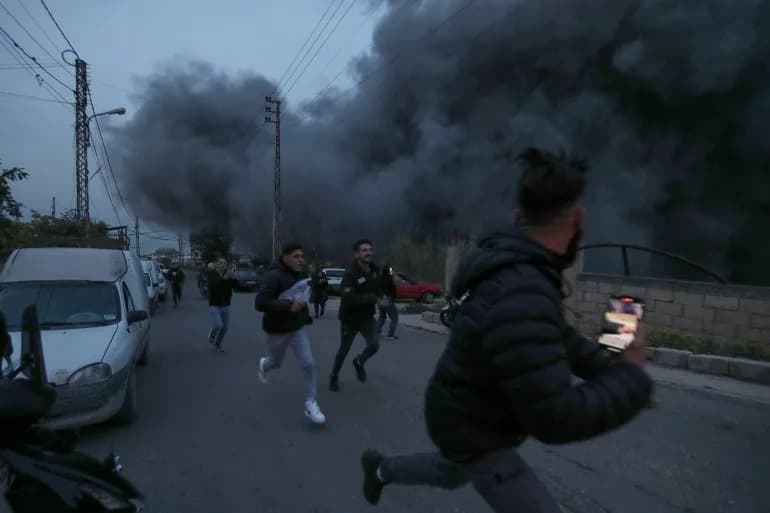Israel Strikes Hezbollah Targets in Southern Lebanon
Israel carried out a series of air and artillery strikes on Hezbollah positions in southern Lebanon on Thursday, saying its forces hit "terrorist infrastructure and weapon storage facilities" as part of efforts to prevent the group from reconstituting its capabilities.
Lebanese authorities reported one fatality in the strikes. The Israeli military said one strike targeted what it described as a Hezbollah construction team.
Lebanese Reaction
President Joseph Aoun condemned the attacks as "a fully-fledged crime," accusing Israel of rejecting Beirut's diplomatic outreach and undermining prospects for a negotiated settlement. "Nearly a year has passed since the ceasefire came into effect," he said, "and during this period, Israel has spared no effort to demonstrate its rejection of any negotiated settlement between the two countries."
"A fully-fledged crime... a heinous political crime," said President Aoun in an evening statement.
The Lebanese Armed Forces (LAF) said the strikes were preventing the full implementation of the November 2024 ceasefire arrangement with Hezbollah — an agreement that envisaged Hezbollah pulling back while the LAF and UN peacekeepers assumed greater control in the south.
Hezbollah's Position
Earlier on Thursday, Hezbollah publicly reaffirmed its right to self-defence and rejected proposals for direct political talks with Israel, calling such negotiations contrary to the national interest. At the same time, the movement said it remained committed to the ceasefire.
International and Regional Context
Israel has maintained it will not allow Hezbollah to "rearm themselves, to recover, build back up its strength, to threaten the state of Israel," government spokeswoman Shosh Bedrosian told reporters, accusing the group of "continuous terrorist activities."
The ceasefire monitoring mechanism — which involves the United States, France and the United Nations and meets at the UNIFIL headquarters in southern Lebanon — remains the only formal channel between Beirut and Jerusalem. The two sides do not hold direct talks.
UNIFIL said the latest strikes "undermine the progress being made toward a political and diplomatic solution." Lebanese officials warned the attacks risk destabilising the region and complicating the planned deployment of Lebanese army units alongside UN peacekeepers in the south.
Disarmament and Diplomacy
The United States has increased pressure on Lebanese authorities since the ceasefire to pursue a state monopoly on weapons and to disarm Hezbollah, a policy opposed by the movement and its political allies. Lebanon says it has drawn up a plan to impose a state monopoly on weapons and the cabinet met Thursday to review disarmament progress.
Information Minister Paul Morcos said the cabinet "commended the progress achieved... despite ongoing obstacles, primarily the continued Israeli hostilities." Israel's Defence Minister Israel Katz accused President Aoun of "dragging his feet" on disarmament efforts, while Hezbollah criticised what it called the government's "hasty decision" to remove its weapons and said Israel has sought to exploit those moves.
The situation remains fragile: Lebanon and Israel are formally at war, but recent hostilities have been conducted primarily by Hezbollah rather than the Lebanese state. Regional tensions and competing security objectives continue to complicate efforts toward a lasting political settlement.
Sources: Lebanese health ministry, Lebanese Armed Forces, Israeli military statements, UNIFIL, statements from President Joseph Aoun and Lebanese government officials.





























